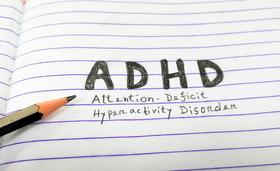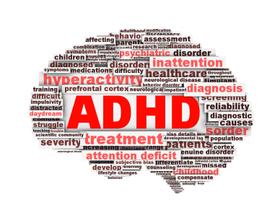PE class has always been a cornerstone of a public education. However, some states are taking health concerns a step further by monitoring children's body mass index and reporting findings back to parents for further action.
Is a school weigh-in taking physical fitness too far? There are experts on both sides of the issue generating a compelling debate over "fat grades" in schools today.
The Obesity Problem
Few experts would argue the fact that childhood obesity is a problem of epidemic proportions today. According to the Centers for Disease Control and Prevention, the percentage of youth considered obese tripled between 1980 and 2004. Today, 19% of children between the ages of 6 and 11, as well as 17% of adolescents between the ages of 12 and 19, are classified as obese. That translates to about 25 million children in this country who are at greater risk of what was once considered adult health issues, such as high cholesterol, hypertension and lifestyle-related diabetes.
One way to determine whether an individual is obese is by calculating the body mass index, or BMI. The BMI is the ratio of a person's height to weight, squared, and it usually gives an accurate determination of an individual's body fat.
The CDC recommends that schools conduct BMI surveillance programs, similar to the ones some schools have adopted. However, in the CDC model, results are anonymous and used more to determine trends in specific population sects, rather than assessing an individual student's health status.
The CDC also supports BMI screening programs, which evaluate individuals to identify students at risk and provide parents with important information to help children maintain a healthier weight throughout life.
This video reports on the epidemic of obesity.
Screening in Arkansas
Six years ago, Arkansas, led by Governor Mike Huckabee, launched an ambitious campaign to address childhood obesity, according to a report on Boston.com. Included in the campaign is a state mandate that all public schools provide weights and measurements of their students to offer parents essential information about their children's health.
The model in Arkansas is being used to create new programs in states like Massachusetts and Wyoming.
However, the idea is not without its share of opponents; namely, parents and other concerned residents feel schools are overstepping their boundaries by collecting such personal information.
This video reports on the impact of nutrition on health.
States Meet Resistance
Public schools in Massachusetts are launching their own BMI screening program, according to a different report at Boston.com. Recently, the Public Health Council for the state unanimously approved screening of Massachusetts students to determine whether they are overweight. Children will be assessed in first, fourth, seventh and 10th grades, and parents have the ability to opt out of the program if they do not wish their children to participate.
In addition to receiving the results of the assessment, parents will also get recommendations on dealing with their child's weight problem, if a problem was determined through the assessment. Recommendations will include a suggestion to make an appointment with the child's pediatrician for further information.
A school in Wyoming is also participating in a BMI assessment program, although some parents aren't happy about it. According to a report on ABC's Nightline, some believe that weight issues should be handled between the family and their doctors; schools should keep their noses out. Rosie Barbour, the mother of a student who was sent home with a BMI rating well above the "normal" range, complained to ABC about the report, "It just doesn't have any place in the school. It's fine if you want to teach them how to eat healthy and make better choices during health class, but I don’t think giving them BMI on their report cards is the answer."
Parents throughout the states who have adopted BMI programs have voiced concerns over schools getting involved in matters that are not their direct business. A recent editorial on FOX News even advises parents to use the evaluation as a "teaching moment about free will" by encouraging children to refuse to participate. The editorial asserts that the real measure of an individual has nothing to do with his body weight, but in the weight of his ideas.
However, Dr. Dave Fall, chairman of the Campbell County School Board in Wyoming contends that the physical health of the students is a legitimate concern for schools, because healthy kids tend to perform better in school. Fall told ABC, "It is an academic issue, and an education issue, in my opinion. And that's why putting it on the report card, I think, is the right thing to do."
Questions? Contact us on Facebook. @publicschoolreview




















































































































































